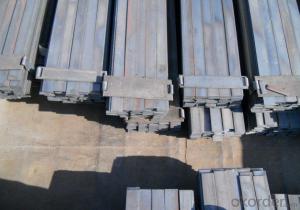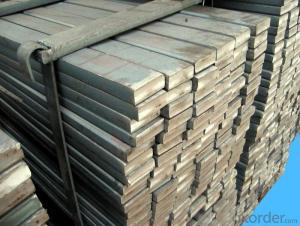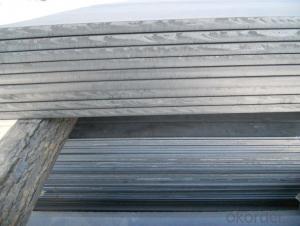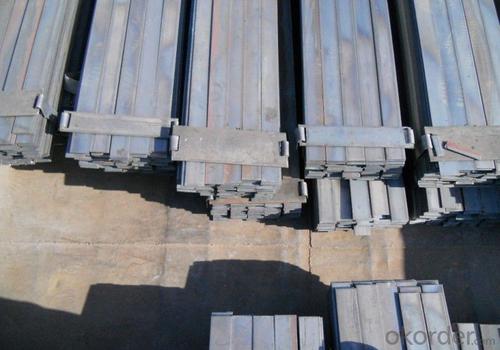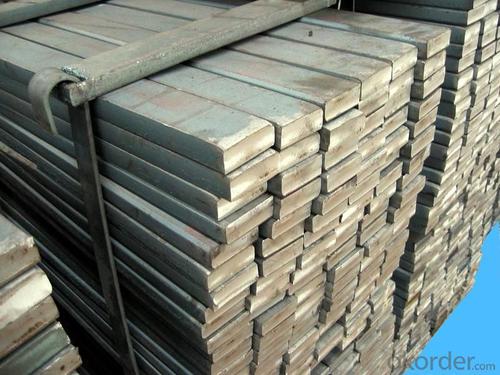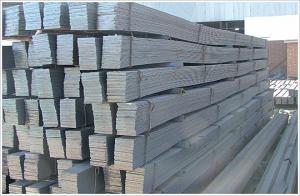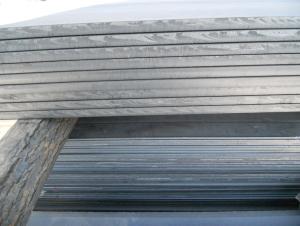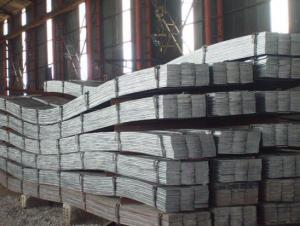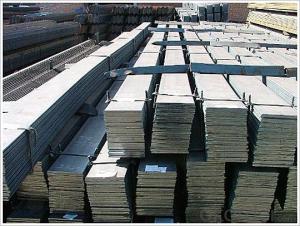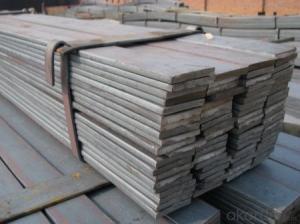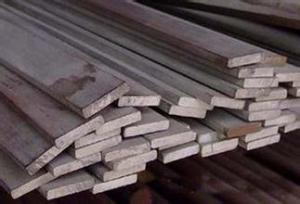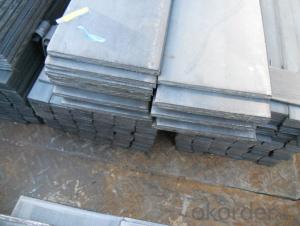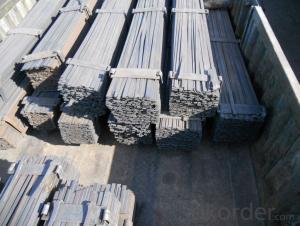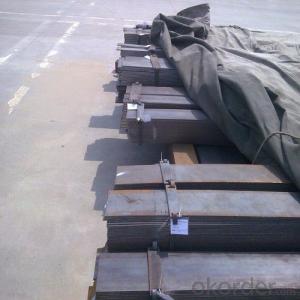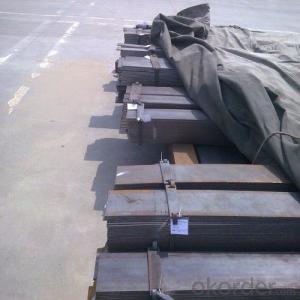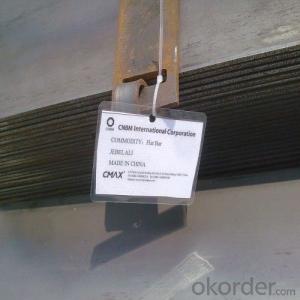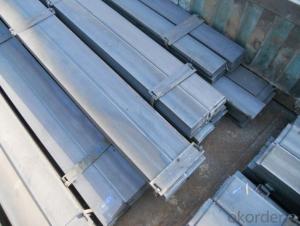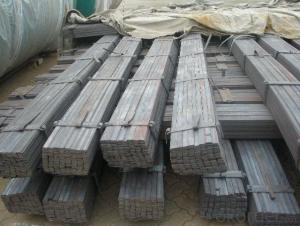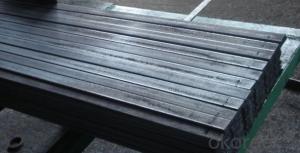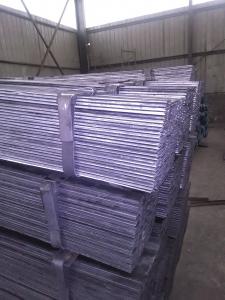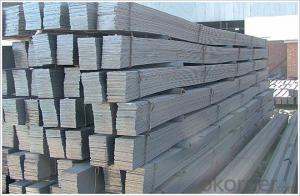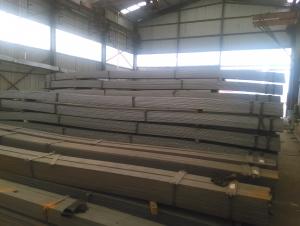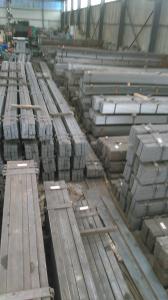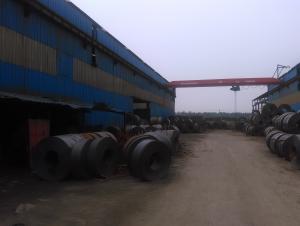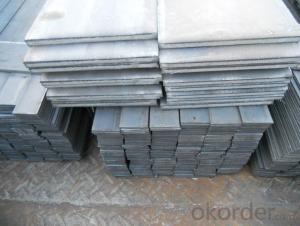Hot Rolled Flat Bar with Material Grade Q235B and Good Price
- Loading Port:
- Tianjin
- Payment Terms:
- TT OR LC
- Min Order Qty:
- 25 m.t
- Supply Capability:
- 10000 m.t/month
OKorder Service Pledge
OKorder Financial Service
You Might Also Like
Product Description:
OKorder is offering high quality Flat Bar at great prices with worldwide shipping. Our supplier is a world-class manufacturer of steel, with our products utilized the world over. OKorder annually supplies products to European, North American and Asian markets. We provide quotations within 24 hours of receiving an inquiry and guarantee competitive prices.
Product Applications:
Flat Bars are ideal for structural applications and are widely used in the construction of buildings and bridges, and the manufacturing, petrochemical, and transportation industries.
Product Advantages:
OKorder's Flats Bars are durable, strong, and resist corrosion.
Main Product Features:
· Premium quality
· Prompt delivery & seaworthy packing (30 days after receiving deposit)
· Corrosion resistance
· Can be recycled and reused
· Mill test certification
· Professional Service
· Competitive pricing
Product Specifications:
Manufacture: Hot Rolled
Grade: Q195 – 235
Certificates: ISO, SGS, BV, CIQ
Length: 6m – 12m, as per customer request
Packaging: Export packing, nude packing, bundled
Chemical composition of Q235
Alloy No | Grade | Element(%) | ||||
C
| Mn
| S
| P
| Si
| ||
Q235
|
B
|
0.12—0.20 |
0.3—0.7 |
≤0.045 |
≤0.045
|
≤0.3
|
Physical properties of Q235
Alloy No | Grade | Yielding strength point(Mpa) | Tensile strength (Mpa) | Elongation after fracture(%) | ||||||
Thickness (mm) | Thickness (mm) | |||||||||
≤16 | >16--40 | >40--60 | >60--100 | ≤16 | >16--40 | >40--60 | >60--100 | |||
≥ | ≥ | |||||||||
Q235 |
B |
235 |
225 |
215 |
205 |
375--500 |
26 |
25 |
24 |
23 |
FAQ:
Q1: Why buy Materials & Equipment from OKorder.com?
A1: All products offered byOKorder.com are carefully selected from China's most reliable manufacturing enterprises. Through its ISO certifications, OKorder.com adheres to the highest standards and a commitment to supply chain safety and customer satisfaction.
Q2: How do we guarantee the quality of our products?
A2: We have established an advanced quality management system which conducts strict quality tests at every step, from raw materials to the final product. At the same time, we provide extensive follow-up service assurances as required.
Q3: Can stainless steel rust?
A3: Stainless does not "rust" as you think of regular steel rusting with a red oxide on the surface that flakes off. If you see red rust it is probably due to some iron particles that have contaminated the surface of the stainless steel and it is these iron particles that are rusting. Look at the source of the rusting and see if you can remove it from the surface.
Images:
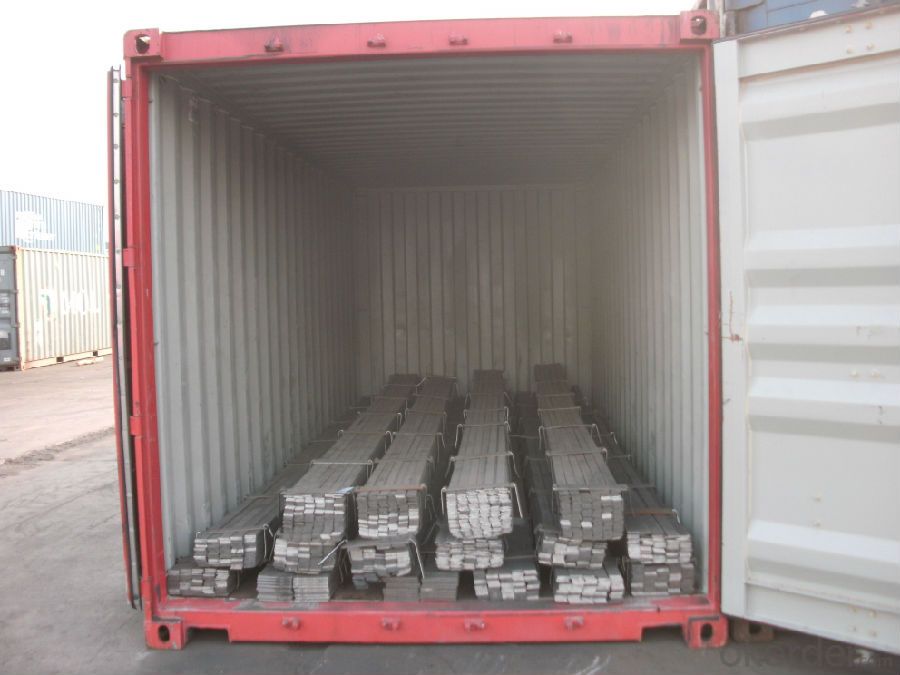
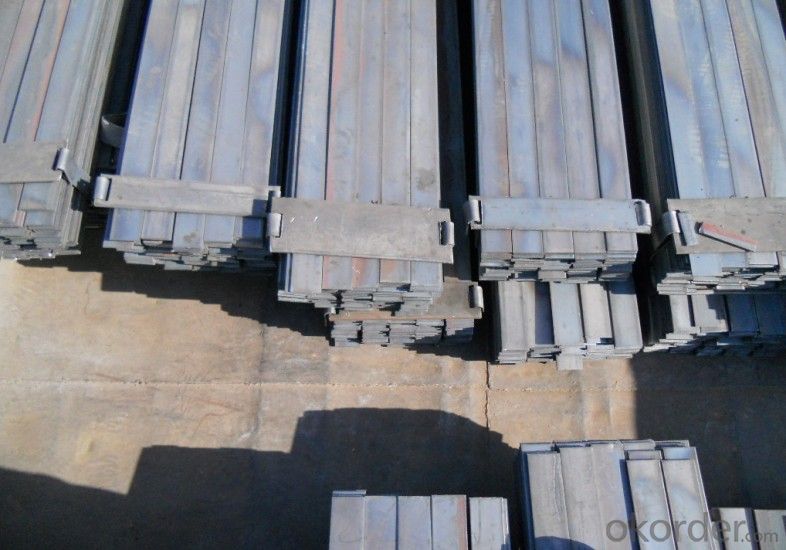
- Q: Can steel flat bars be used for shelving or storage systems?
- Yes, steel flat bars can be used for shelving or storage systems. Steel flat bars are strong and durable, making them a suitable choice for supporting heavy loads on shelves or in storage units. They can be easily cut and welded to create custom shelving configurations and can withstand the weight of various items. Additionally, steel flat bars have a sleek and modern appearance, making them a popular choice for industrial or contemporary storage systems.
- Q: Can steel flat bars be used for manufacturing machinery or equipment?
- Yes, steel flat bars can be used for manufacturing machinery or equipment. Steel flat bars are versatile and have a wide range of applications in various industries, including manufacturing. They are commonly used for constructing machine frames, supports, brackets, and other structural components in machinery and equipment. Steel flat bars have excellent strength and durability properties, which make them suitable for withstanding heavy loads and high stress conditions. Additionally, their flat shape provides stability and allows for easy attachment of other components. Overall, steel flat bars are a reliable choice for manufacturing machinery and equipment due to their strength, versatility, and availability in different sizes and grades.
- Q: What are the common factors affecting the price of steel flat bars?
- The common factors affecting the price of steel flat bars include the cost of raw materials, such as iron ore and scrap metal, as well as production and labor costs. Market demand and supply dynamics, including fluctuations in global steel prices, also play a significant role in determining the price of steel flat bars. Other factors like transportation costs, currency exchange rates, and government regulations can also impact the final price.
- Q: Can steel flat bars be recycled?
- Yes, steel flat bars can be recycled. Steel is one of the most commonly recycled materials due to its high recyclability. Recycling steel flat bars helps conserve natural resources, reduce energy consumption, and minimize waste in landfills.
- Q: Are steel flat bars commonly used in the construction of government buildings?
- Government buildings commonly utilize steel flat bars in their construction. Steel, being a versatile and durable material, is widely employed in the construction industry. Specifically, steel flat bars are frequently employed for structural support and reinforcement. These bars are often integrated into government buildings' columns, beams, and frames, thereby ensuring strength and stability throughout the structure. Moreover, steel flat bars are renowned for their ability to withstand fire, corrosion, and harsh weather conditions, rendering them an ideal choice for government buildings that necessitate secure and long-lasting structures.
- Q: How do steel flat bars perform in high-humidity environments?
- Steel flat bars generally exhibit good performance in high-humidity settings, although certain factors may impact their effectiveness. Steel is renowned for its strength, durability, and ability to resist corrosion, making it suitable for a wide range of applications. However, in environments with high levels of humidity, the presence of moisture can expedite the corrosion process, potentially resulting in rust and deterioration of the steel. To counteract the effects of high humidity, protective finishes or corrosion-resistant coatings like galvanization can be applied to steel flat bars. These coatings create a barrier between the steel and its surroundings, impeding or slowing down the corrosion process. Nevertheless, it is important to note that the efficiency of these coatings can vary based on their quality and the severity of the humidity. In extremely humid or corrosive environments, stainless steel flat bars, which possess greater corrosion resistance, may be necessary. In high-humidity conditions, consistent maintenance and regular inspections are vital to promptly identify any signs of corrosion or damage. This may entail regular cleaning of the steel, removal of accumulated moisture or debris, and the application of additional protective coatings if deemed necessary. Overall, while steel flat bars can perform admirably in high-humidity environments, it is crucial to consider the specific conditions and implement appropriate measures to ensure their long-lasting durability and performance.
- Q: Can steel flat bars be used for reinforcing concrete?
- Yes, steel flat bars can be used for reinforcing concrete. Steel flat bars are often used as reinforcement in concrete structures to enhance their strength and durability. The bars are typically placed horizontally or vertically within the concrete to provide additional tensile strength and prevent cracking or structural failure. The use of steel flat bars as reinforcement helps to distribute the load and improve the overall performance of the concrete. Additionally, the steel bars also help to resist bending and shear forces, further enhancing the structural integrity of the concrete.
- Q: Are steel flat bars suitable for making brackets or supports for oil and gas pipelines?
- Certainly! Steel flat bars are appropriate for creating brackets or supports for oil and gas pipelines. Steel possesses notable strength and durability, making it an optimal material choice for tasks that demand substantial load-bearing capabilities. Flat bars present a broad surface area for effectively distributing the weight and stress of the pipelines, guaranteeing stability and support. Moreover, steel boasts exceptional resistance against corrosion, which is vital in oil and gas pipelines where exposure to moisture and harsh environments is prevalent. Additionally, it is important to mention that steel flat bars can be readily manufactured and tailored to meet specific design requirements, rendering them exceedingly versatile for diverse pipeline support applications. In summary, steel flat bars offer the essential strength, durability, and corrosion resistance required for fabricating brackets or supports for oil and gas pipelines.
- Q: Can steel flat bars be used for making shelving or storage units?
- Steel flat bars are a versatile choice for constructing shelving or storage units due to their durability and strength. They are capable of holding heavy items and enduring frequent use. Moreover, steel flat bars offer the flexibility to create customized storage solutions through welding or bolting, ensuring a perfect fit for specific needs and spaces. In addition to their practicality, the sleek and modern appearance of steel flat bars adds an aesthetic appeal to shelving or storage units, making them suitable for both residential and commercial settings. Ultimately, steel flat bars serve as a dependable and robust foundation for building long-lasting and functional shelving or storage units.
- Q: Can steel flat bars be cut to length?
- Certainly! It is possible to cut steel flat bars to the desired length. These bars possess great versatility, and one can easily cut them using a range of cutting tools like saws, shears, or plasma cutters. Typically, fabrication shops or construction sites carry out this process to fulfill specific project needs. By employing proper tools and techniques, steel flat bars can be precisely and neatly cut to the desired length.
Send your message to us
Hot Rolled Flat Bar with Material Grade Q235B and Good Price
- Loading Port:
- Tianjin
- Payment Terms:
- TT OR LC
- Min Order Qty:
- 25 m.t
- Supply Capability:
- 10000 m.t/month
OKorder Service Pledge
OKorder Financial Service
Similar products
Hot products
Hot Searches
Related keywords
